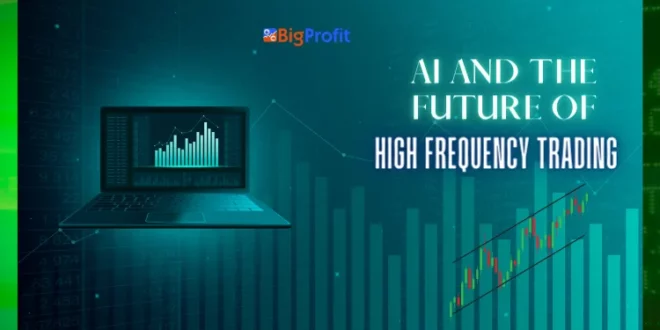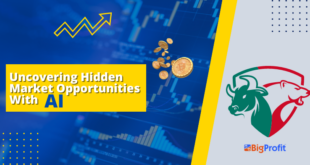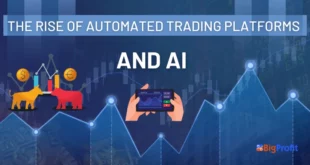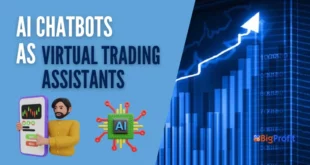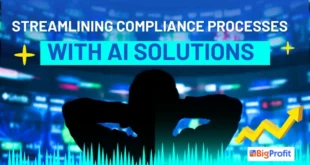AI can enhance trading results in many ways, yet there are certain limitations and challenges associated with its use that must be considered before proceeding with AI trading strategies. These include data quality/availability issues, ethical concerns, and the requirement for continual improvements.
These algorithms enable investors to take advantage of arbitrage opportunities that last only fractions of a second – such as when pension funds and investment firms rebalance their portfolios. Index arbitrage strategies take full advantage of this phenomenon.
High-Frequency Trading (HFT)
High-frequency trading (HFT) employs computer algorithms to execute trades at an unprecedented speed, often within fractions of seconds. Although HFT may offer greater profits than more traditional forms of trading, its associated risks have drawn increased regulatory attention with calls for stricter controls to prevent market manipulation.
AI can be an invaluable asset when it comes to improving HFT performance, yet is far from replacing human traders entirely. Success lies in being able to quickly spot opportunities for trading opportunities and react accordingly; this requires sophisticated software, hardware and the capability of processing data at high speeds.
Computers capable of processing information at near lightspeed are capable of processing information quickly, so it is vital that your HFT system has all of the appropriate hardware – this may include high-speed networking, specialized servers and operating system optimization such as kernel bypass networking – in order to operate effectively and scale easily as your trading volume increases.
Automated Trading
Where traditional algorithms abide by pre-set rules, AI trading systems learn from gigabytes of stock market data exchanged on an ongoing basis to become far more flexible and efficient than humans.
robot traders have the capacity to adapt and perform tasks once considered impossible for human traders, such as real-time price forecasting based on patterns such as price changes, currency values, global indices and raw materials; increasing speed and number of transactions significantly.
Investment firms and pension funds may take advantage of arbitrage opportunities lasting only half a second – the time required for prices in New York to update in London. Furthermore, index arbitrage strategies take advantage of periods during which pension funds and investment firms rebalance portfolios of stocks that track global indices.
Not all AI trading systems remain profitable over the long-term; those that excel are those with an audited, transparent 3-year track record and strong risk management practices.
Artificial Intelligence (AI)
Artificial Intelligence (AI) is a technology that mimics human intelligence by replicating and amplifying tasks performed by people. AI software programs can identify patterns in data, make predictions and adapt quickly to changing market conditions in real-time – making AI an indispensable asset for stock trading enabling automated algorithms to identify opportunities at the most profitable price and complete trades accordingly.
However, it’s essential to keep in mind that even the most advanced AI programs cannot match human intelligence; although computers have proven superior at playing chess and Go, humans still outperform computers in quarter-mile races.
AI technologies are being increasingly employed to automate software coding and other IT processes. Generative AI tools have recently made headway into producing application code based on natural language prompts; however, these are still in their infancy and unlikely to replace software engineers anytime soon. Thanks to hardware optimization and cloud infrastructure upgrades, performance of AI models has seen dramatic increases; many vendors offer pre-trained transformers which can be fine tuned quickly for specific tasks at fraction of the cost, expertise and time required when starting from scratch.
Machine Learning (ML)
Machine Learning (ML) utilizes algorithms to enable computers to process data and make decisions autonomously without explicit programming. It has become invaluable because of its ability to solve problems more rapidly than human capabilities alone can do.
Traders employ Machine Learning (ML) techniques to extract insights from rapidly expanding data sets and automate key investment activities like making predictions, asset allocation, position sizing and backtesting. Furthermore, ML is becoming an important technology used for algorithmic trading platforms as well as improving quality investment decisions and results.
AI and ML have also proven beneficial in detecting security vulnerabilities before they become breaches, optimizing production machines, detecting fraud and improving customer and employee experiences with chatbots, visual search and recommendations engines. Unfortunately there remain obstacles associated with implementing AI and ML; for instance ML models may be prone to issues resulting in latency or delays when trying to advance initiatives using these technologies.
 BigProfit Profit through Algo & Technical Trading
BigProfit Profit through Algo & Technical Trading
